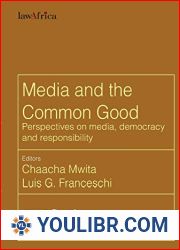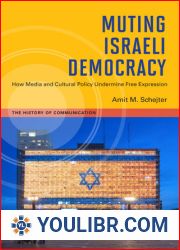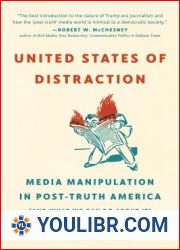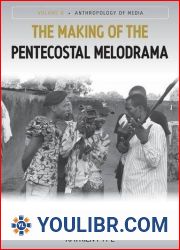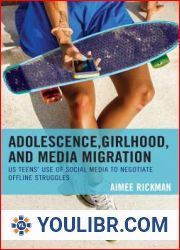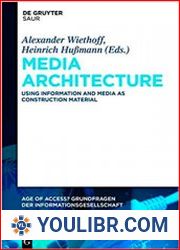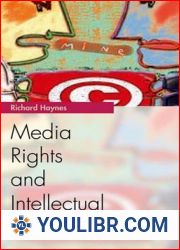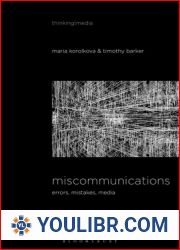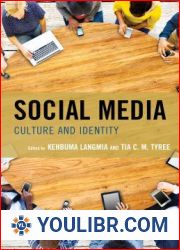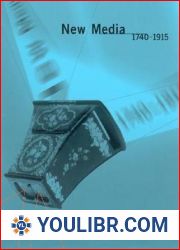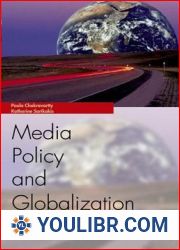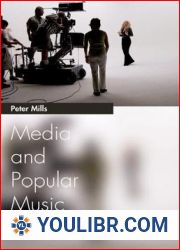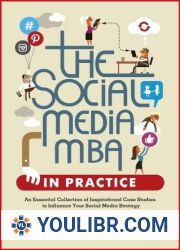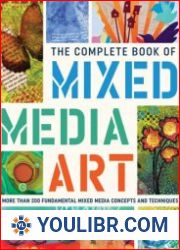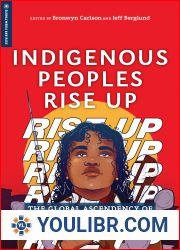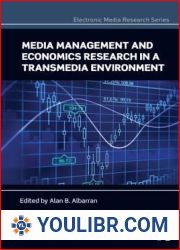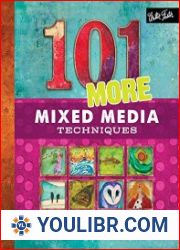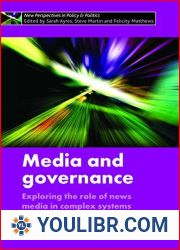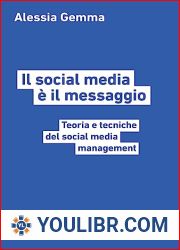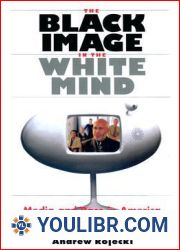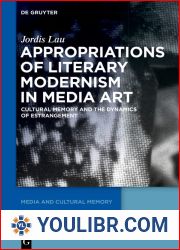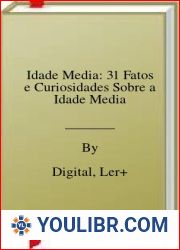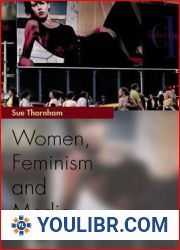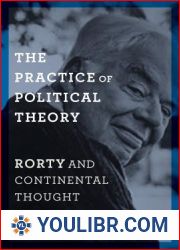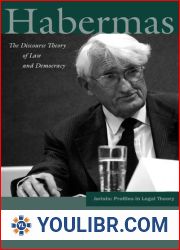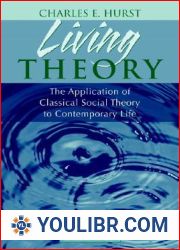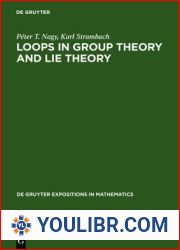
BOOKS - Media of Reason: A Theory of Rationality

Media of Reason: A Theory of Rationality
Author: Matthias Vogel
Year: November 1, 2012
Format: PDF
File size: PDF 1.4 MB
Language: English

Year: November 1, 2012
Format: PDF
File size: PDF 1.4 MB
Language: English

Media of Reason: A Theory of Rationality Matthias Vogel, in his groundbreaking book "Media of Reason: A Theory of Rationality challenges the prevailing belief in contemporary philosophy that reason is solely determined by our discursive linguistic abilities as communicative beings. He argues that the medium of language is not the only force of reason, but rather, music, art, and other non-linguistic forms of communication and understanding are equally significant. Vogel's expansive theory of mind accounts for highly sophisticated, penetrative media, thus freeing philosophy from its exclusive attachment to linguistics. Vogel's central thesis is that all kinds of understanding and thought, both propositional and non-propositional, are essential to the processes and production of knowledge and thinking. By developing an account of rationality grounded in a new conception of media, he raises the profile of pre-linguistic and non-linguistic dimensions of rationality, thereby advancing the Enlightenment project while buffering it against the postmodern critique that the movement fails to appreciate aesthetic experience.
Media of Reason: A Theory of Rationality Маттиас Фогель в своей новаторской книге «Media of Reason: A Theory of Rationality» бросает вызов господствующей в современной философии вере в то, что разум определяется исключительно нашими дискурсивными лингвистическими способностями как коммуникативных существ. Он утверждает, что носитель языка не является единственной силой разума, но, скорее, музыка, искусство и другие нелингвистические формы общения и понимания одинаково значимы. Экспансивная теория разума Фогеля учитывает очень сложные, проникающие медиа, освобождая таким образом философию от её исключительной привязанности к лингвистике. Центральный тезис Фогеля состоит в том, что все виды понимания и мышления, как пропозиционального, так и непозиционального, необходимы для процессов и производства знаний и мышления. Разрабатывая отчет о рациональности, основанный на новой концепции медиа, он поднимает профиль долингвистических и нелингвистических измерений рациональности, тем самым продвигая проект Просвещения, в то же время защищая его от постмодернистской критики, что движение не в состоянии оценить эстетический опыт.
Media of Reason : A Theory of Rationality Matthias Vogel, dans son livre novateur Media of Reason : A Theory of Rationality, récuse la croyance dominante dans la philosophie moderne selon laquelle l'esprit est défini uniquement par nos capacités linguistiques discursives en tant qu'êtres communicatifs. Il affirme que le locuteur natif n'est pas la seule force de l'esprit, mais plutôt la musique, l'art et d'autres formes de communication et de compréhension non linguistiques sont également significatives. La théorie expansive de l'esprit de Vogel tient compte des médias très complexes et pénétrants, libérant ainsi la philosophie de son attachement exclusif à la linguistique. La thèse centrale de Vogel est que tous les types de compréhension et de pensée, à la fois propositionnelle et non positionnelle, sont nécessaires pour les processus et la production de la connaissance et de la pensée. En développant un rapport sur la rationalité basé sur une nouvelle conception des médias, il soulève le profil des dimensions dolingvistes et non anglophones de la rationalité, favorisant ainsi le projet des Lumières, tout en le protégeant des critiques postmodernistes que le mouvement n'est pas en mesure d'apprécier l'expérience esthétique.
Media of Reason: A Theory of Rationality Matthias Vogel, en su libro pionero Media of Reason: A Theory of Rationality, desafía la creencia imperante en la filosofía moderna de que la razón está determinada exclusivamente por nuestras habilidades lingüísticas discursivas como seres comunicativos. Afirma que el hablante nativo no es la única fuerza de la razón, sino que la música, el arte y otras formas no lingüísticas de comunicación y comprensión son igualmente significativas. La teoría expansiva de la mente de Vogel toma en cuenta medios muy complejos y penetrantes, liberando así la filosofía de su excepcional apego a la lingüística. La tesis central de Vogel es que todo tipo de comprensión y pensamiento, tanto propositivo como no posesional, son necesarios para los procesos y la producción de conocimiento y pensamiento. Al elaborar un informe de racionalidad basado en la nueva concepción de los medios, plantea el perfil de las dimensiones dolingüísticas y no lingüísticas de la racionalidad, impulsando así el proyecto de la Ilustración, al tiempo que la defiende de la crítica posmoderna de que el movimiento es incapaz de apreciar la experiencia estética.
Media of Reason: A Theory of Rationality, Matthias Vogel, em seu livro inovador «Media of Reason: A Theory of Rationality», desafia a crença dominante na filosofia moderna de que a mente é definida exclusivamente por nossas habilidades linguísticas discursivas como seres comunicativos. Ele afirma que a linguagem não é a única força da mente, mas que a música, a arte e outras formas ilinguistas de comunicação e compreensão são igualmente significativas. A teoria expansiva da mente de Vogel leva em conta mídias muito complexas e penetrantes, libertando assim a filosofia de seu exclusivo apego à linguística. A tese central de Vogel é que todos os tipos de compreensão e pensamento, tanto propensos como não, são essenciais para os processos e a produção de conhecimento e pensamento. Ao elaborar um relatório de racionalidade baseado no novo conceito de mídia, ele eleva o perfil das dimensões dolinguistas e ilinguistas da racionalidade, promovendo assim o Projeto de Iluminação, ao mesmo tempo que o defende das críticas pós-modernas de que o movimento não é capaz de avaliar a experiência estética.
Media of Reason: A Theory of Rationality, Matthias Vogel, nel suo libro innovativo Media of Reason: A Theory of Rationality, sfida la fede dominante nella filosofia moderna che la mente sia determinata esclusivamente dalle nostre abilità linguistiche discursive come esseri comunicativi. Egli sostiene che il portatore di linguaggio non è l'unica forza della mente, ma piuttosto la musica, l'arte e altre forme illinguistiche di comunicazione e comprensione sono ugualmente importanti. La teoria espansiva della mente di Vogel prende in considerazione i media molto complessi e penetranti, liberando così la filosofia dal suo eccezionale attaccamento alla linguistica. La tesi centrale di Vogel è che tutti i tipi di comprensione e pensiero, sia introspettivo che non, sono essenziali per i processi e la produzione di conoscenza e pensiero. Elaborando un rapporto sulla razionalità basato su un nuovo concetto di media, elabora un profilo delle dimensioni dolinguistiche e illinguistiche della razionalità, promuovendo così il progetto dell'Illuminismo, mentre lo protegge dalle critiche postmoderne che il movimento non è in grado di apprezzare l'esperienza estetica.
Medien der Vernunft: Eine Theorie der Rationalität Matthias Vogel fordert in seinem wegweisenden Buch „Medien der Vernunft: Eine Theorie der Rationalität“ den in der modernen Philosophie vorherrschenden Glauben heraus, dass Vernunft allein von unseren diskursiven sprachlichen Fähigkeiten als kommunikative Wesen bestimmt wird. Er argumentiert, dass der Muttersprachler nicht die einzige Kraft des Geistes ist, sondern dass Musik, Kunst und andere nicht-sprachliche Formen der Kommunikation und des Verständnisses gleichermaßen bedeutsam sind. Vogels expansive Theorie des Geistes berücksichtigt hochkomplexe, durchdringende Medien und befreit so die Philosophie von ihrer ausschließlichen Bindung an die Linguistik. Vogels zentrale These ist, dass alle Arten des Verständnisses und Denkens, sowohl propositionell als auch unpositionell, für Prozesse und die Produktion von Wissen und Denken notwendig sind. Durch die Entwicklung eines Rationalitätsberichts auf der Grundlage eines neuen Medienbegriffs hebt er das Profil der dolinguistischen und nicht-linguistischen Dimensionen der Rationalität hervor und fördert damit das Projekt der Aufklärung, während er es gleichzeitig gegen die postmoderne Kritik verteidigt, dass die Bewegung nicht in der Lage sei, ästhetische Erfahrungen zu würdigen.
''
Aklın Medyası: Bir Akılcılık Teorisi Matthias Vogel, çığır açan kitabında Aklın Medyası: Bir Akılcılık Teorisi, modern felsefede aklın yalnızca söylemsel dilsel yeteneklerimiz tarafından iletişimsel varlıklar olarak belirlendiği inancına meydan okuyor. Yerli konuşmacının aklın tek gücü olmadığını, bunun yerine müzik, sanat ve diğer dilsel olmayan iletişim ve anlayış biçimlerinin eşit derecede önemli olduğunu savunuyor. Vogel'in geniş zihin teorisi, çok karmaşık, nüfuz edici medyayı dikkate alır, böylece felsefeyi dilbilime olan özel bağlılığından kurtarır. Vogel'in merkezi tezi, hem önermesel hem de önermesiz her türlü anlayış ve düşüncenin, bilgi ve düşüncenin süreçleri ve üretimi için gerekli olduğudur. Yeni medya kavramına dayanan bir rasyonellik raporu geliştirirken, rasyonalitenin dil öncesi ve dilsel olmayan boyutlarının profilini yükseltir, böylece Aydınlanma projesini teşvik ederken, aynı zamanda hareketin estetik deneyimi takdir edemediği postmodern eleştiriden korur.
وسائط العقل: نظرية العقلانية ماتياس فوغل، في كتابه الرائد «وسائط العقل: نظرية العقلانية»، يتحدى الاعتقاد السائد في الفلسفة الحديثة بأن العقل يتحدد فقط من خلال قدراتنا اللغوية الاستطرادية ككائنات تواصلية. يجادل بأن المتحدث الأصلي ليس القوة الوحيدة للعقل، ولكن بالأحرى أن الموسيقى والفن وأشكال الاتصال والفهم غير اللغوية الأخرى لها نفس الأهمية. تأخذ نظرية العقل الموسعة لفوغل في الاعتبار وسائل الإعلام شديدة التعقيد والاختراق، وبالتالي تحرير الفلسفة من ارتباطها الحصري باللغويات. تتمثل أطروحة فوغل المركزية في أن جميع أنواع الفهم والتفكير، سواء كانت مقترحة أو غير مقترحة، ضرورية للعمليات وإنتاج المعرفة والتفكير. عند وضع تقرير عقلانية يستند إلى المفهوم الجديد لوسائل الإعلام، قام بإبراز صورة الأبعاد ما قبل اللغوية وغير اللغوية للعقلانية، وبالتالي تعزيز مشروع التنوير، مع حمايتها في الوقت نفسه من انتقاد ما بعد الحداثة بأن الحركة لا تقدر التجربة الجمالية.










